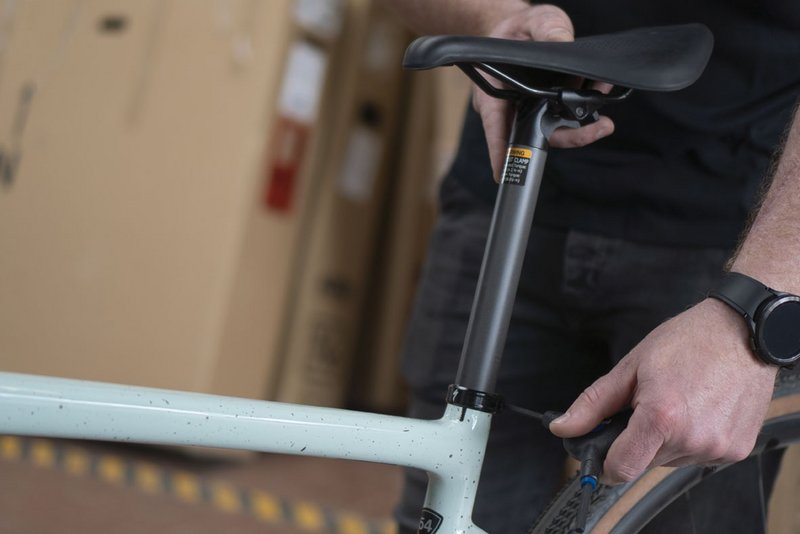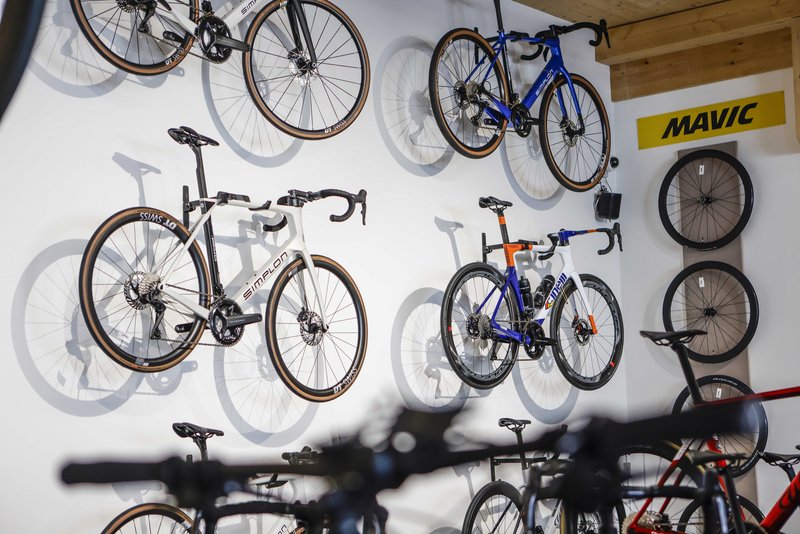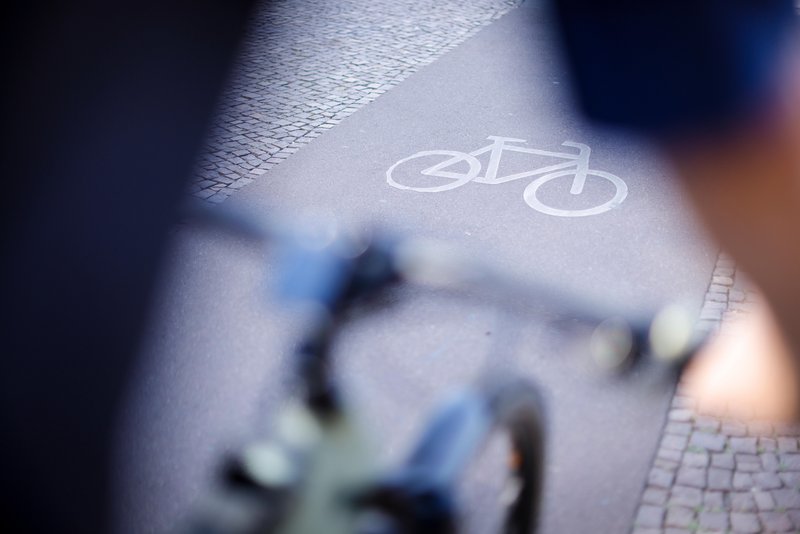Fact or myth: Disadvantages of company bikes in the check
Good for your health, the environment and your wallet - as a company bike provider, we naturally prefer to focus on the benefits of company bike leasing.
Nevertheless, we believe that the question of possible disadvantages is also justified. Here we present some arguments against the company bike and clarify what is fact and what is myth.
Pros and cons of company bike leasing
Savings of up to 40 per cent – for employees, this is one of the main pros of company bike leasing. For companies, on the other hand, the focus is usually more on the opportunity to position themselves as an attractive employer with a meaningful, sustainable and health-promoting benefit. However, there are also counter-arguments to these advantages. We present some of them below and do a fact check.
Fact or myth? I have to use my company bike to get to work.
Using a company bike to commute instead of a car is a healthy way to get exercise that is good for you and the environment. However, this is not a requirement of the company bike leasing scheme.
Even if you walk to work, take the bus or train, or drive because the route is too long for cycling and you prefer to pedal privately, you can still take advantage of the leasing model.
Using a company bike has no influence on the commuter allowance (also known as the distance allowance). This means that even those who use the company bike to get to work can claim the allowance as income-related expenses in their tax return.
Fact or myth? Company bike - Leasing is not for everyone.
The basic idea of company bike leasing via salary conversion is that employers lease bikes for their employees to use. This model is therefore reserved for employees. Although self-employed can also lease a company bike, they cannot use the salary conversion model. Another requirement is the leasing term, which is usually 36 months. For employees whose employment relationship is expected to end in less than three years - e.g. because they are about to retire, are still in training or are employed on a fixed-term contract - company bike leasing may therefore not be an option. The same applies to employees on a mini-job, midi-job or temporary work basis, employees who are paid the minimum wage and employees who are still in their probationary period. If you are interested in the topic of company bikes and find yourself in one of these work situations, you should ask your employer what the company's regulations are.
Fact or myth? When something unexpected happens, it becomes expensive.
Thanks to company bike leasing, even high-priced bikes are becoming affordable for more people. But what happens if the leased e-bike is stolen or the mountain bike is broken in a crash? Do the instalments have to continue to be paid even though the company bike cannot be used? And who will cover the repair costs? Don't worry, thanks to well thought-out insurance solutions, company bikes are comprehensively covered against damage and theft with the Bikeleasing-Service.
Even if it is not the company bike but employees who use a company bike who are unavailable, neither the employee nor the employer are left with the costs: In cases such as termination, cancellation of the employment relationship. Long-term illness, disability and parental leave are covered by Bikeleasing employer default insurance. More information about our insurance benefits
Fact or myth? At the end of the leasing period it becomes expensive.
The hard part comes at the end: the monthly instalments are low, but if you want to keep the company bike at the end of the leasing term, you'll have to dig deep into your pockets again. Is that true?
Yes and no: Towards the end of the 36-month leasing term, company bike users usually receive a takeover offer from us. Even if a binding offer can only be made shortly before the end of the term for tax reasons, you can expect a takeover price of 18% of the RRP. This means, for example, that for a bike with an RRP of 1,000 euros, a further 180 euros will be due at the end in addition to the monthly instalments
Fact or myth? I have to be super careful with a leased bike.
If you do not wish to take over your company bike at the end of the leasing period, you can of course return it. It must be in good condition when you return it. However, this does not mean that the company bike has to look like new after 36 months of use. After all, it is a commodity that is ideally used regularly. In contrast to a leased car, scratches in the paintwork of a company bike are not a problem. However, all leased parts should be present and intact.
There is one difference between a leased bike and a purchased bike though – the anti-theft device: To protect the company bike as well as possible against theft, a high-quality bike lock must always be included in the lease.
Fact or myth? Company bike leasing is only worthwhile for large companies.
Quite the opposite! As an employee benefit, company bike leasing is also ideal for small and medium-sized companies. What makes Bikeleasing so attractive for SMEs? It offers employers the opportunity to provide their employees with an attractive form of appreciation at no additional cost and with minimal effort. With the Bikeleasing-Service, both employees and employers are comprehensively covered and benefit from the very first bike, as we have no minimum purchase quantities.
Fact or myth? My employer decides which company bike I ride.
In order to benefit from the advantages of company bike leasing, the bike must be leased via the employer. However, this does not mean that the employer can decide which bike is used as the company bike.
Whether it is a mountain bike, city bike or cargo bike – the employees alone decide as the users of the company bikes. However, the employer can determine the maximum value of the company bikes and whether an employee can lease one or two company bikes.
Fact or myth? I don't earn enough for a company bike.
One of the basic ideas behind company bike leasing is to make cycling an attractive and sustainable form of mobility for as many people as possible and to make high-quality bikes affordable. One way of achieving this is leasing via salary conversion, where the leasing instalments are paid out of the employee's gross salary, meaning that the net cost of purchasing a bike is significantly lower than with a direct purchase. One of the reasons for this saving is that the reduction in gross salary during the leasing period reduces the basis for calculating income tax and social security contributions. How much you can save when leasing a company bike therefore depends not only on the price of the company bike, but also on how high the salary is taxed. If you pay little or no tax and social security contributions, the savings can actually be lower. Our leasing calculator can provide information on whether a company bike is worthwhile for a certain salary. One variant that is particularly financially attractive for employees is the company bike as a salary extra, where the employer bears all the costs of leasing.
Fact or myth? My pension is suffering because of the company bike.
The potential impact on future pension entitlements is often cited as a disadvantage of company bike leasing. The fact is that the attractive savings from company bike leasing are achieved through salary conversion, which temporarily reduces the gross salary.
This means that, among other things, fewer pension contributions are due. We explain how this affects later pension payments in our article “Less pension through company bike leasing?”
Fact or myth? If I lease a company bike, I can't change my employer.
The leasing term for company bike leasing is usually three years. Ideally, employees are employed by one and the same company during this time.
However, this is by no means always the case. If company bike users change their employer, there are various options – from taking over the company bike and transferring it to the new employer via Bikeleasing employer default insurance. The company bike is therefore an incentive to remain loyal to an employer, but certainly not a shackle.
Many supposed disadvantages of company bike leasing can be refuted quite generally and unequivocally. Other statements depend on the individual case. In general, we see the company bike model as a sensible benefit with win-win-win potential for employees, employers and the environment.












